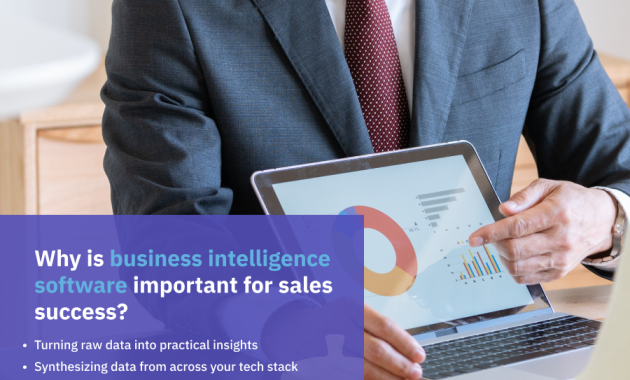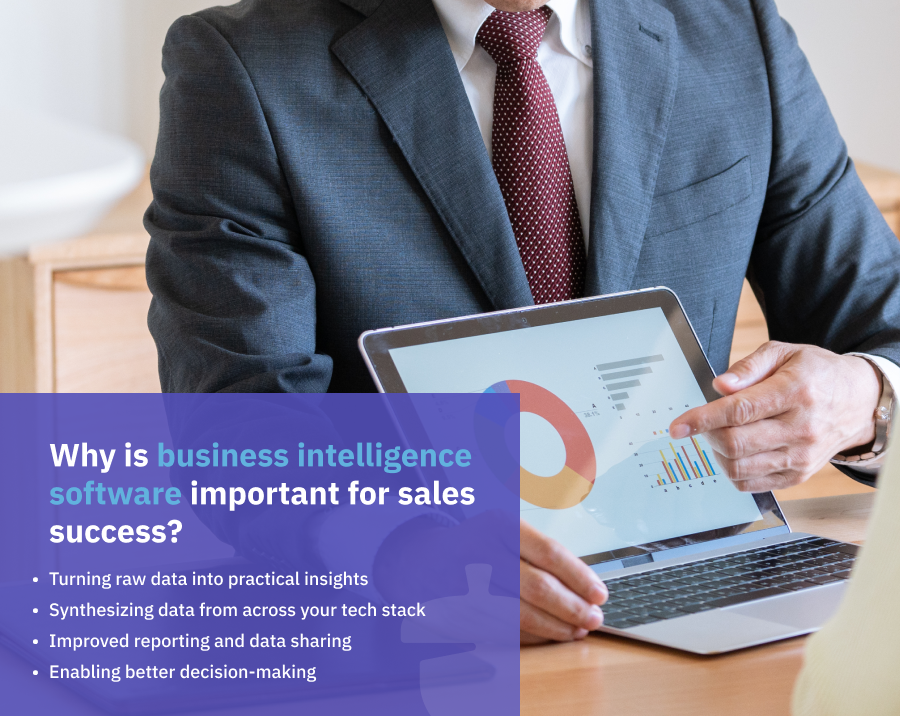
Why You Need Business Intelligence Software You Can Start Today
In today’s data-driven world, businesses are drowning in information. However, simply having data isn’t enough. The true power lies in the ability to understand and utilize it. This is where business intelligence (BI) software steps in. This article explores why you need business intelligence software you can start today. It delves into the benefits, key features, and practical steps to get started. Embracing BI is no longer a luxury; it’s a necessity for any organization aiming for sustainable growth and competitive advantage.
Understanding the Core: What is Business Intelligence Software?
Business intelligence software is designed to collect, process, analyze, and visualize data. It transforms raw data into actionable insights. These insights empower businesses to make informed decisions. The software pulls data from various sources. These sources can include databases, spreadsheets, and cloud-based platforms. It then presents the information in easy-to-understand formats. These formats include dashboards, reports, and charts.
The Compelling Reasons: Why You Need Business Intelligence Software You Can Start Today
The benefits of adopting business intelligence software are numerous. They impact various aspects of a business. Let’s explore some key advantages:
- Improved Decision-Making: BI tools provide real-time data. This allows for faster and more informed decisions. You can spot trends and opportunities quickly. This leads to better strategic planning.
- Enhanced Efficiency: Automating data analysis saves time and resources. BI software streamlines reporting processes. This allows employees to focus on more strategic tasks.
- Increased Revenue: By understanding customer behavior and market trends, businesses can optimize sales strategies. Targeted marketing campaigns become more effective. This leads to higher revenue generation.
- Cost Reduction: Identifying inefficiencies is a key benefit of BI. Businesses can optimize operations and reduce unnecessary expenses. This includes inventory management and resource allocation.
- Better Customer Understanding: Analyzing customer data reveals valuable insights. Businesses can personalize customer experiences. This leads to increased customer satisfaction and loyalty.
- Competitive Advantage: In a competitive market, data is a crucial asset. BI software provides the tools to stay ahead of the curve. It helps businesses anticipate market changes and adapt quickly.
Key Features to Look For in Business Intelligence Software
Selecting the right BI software is critical. Several features are essential for a successful implementation:
- Data Integration: The ability to connect to various data sources is crucial. The software should support different data formats. It should also handle large datasets efficiently.
- Data Visualization: User-friendly dashboards and reports are essential. The software should offer a range of visualization options. These options include charts, graphs, and maps.
- Data Analysis: Advanced analytical capabilities are important. This includes statistical analysis, forecasting, and predictive modeling.
- Reporting and Dashboards: Customizable reports and dashboards are essential for sharing insights. The software should allow for easy creation and sharing of reports.
- Mobile Access: Accessing data on the go is increasingly important. The software should offer mobile access and responsive design.
- User-Friendly Interface: The software should be easy to use, even for non-technical users. A simple and intuitive interface ensures wider adoption.
- Scalability: The software should be able to handle growing data volumes. It should also be scalable to accommodate business growth.
Getting Started: How to Implement Business Intelligence Software
Implementing BI software can seem daunting. However, with careful planning, it can be a smooth process:
- Define Your Goals: Determine what you want to achieve with BI. Identify the key business questions you want to answer. This will guide your software selection and implementation.
- Choose the Right Software: Research different BI software options. Consider your budget, data sources, and technical expertise. Evaluate the features and pricing models.
- Prepare Your Data: Clean and organize your data. Ensure data accuracy and consistency. This is crucial for reliable analysis.
- Implement the Software: Install and configure the software. Integrate it with your data sources. Provide training to your employees.
- Create Dashboards and Reports: Design dashboards and reports that meet your needs. Customize them to visualize key performance indicators (KPIs).
- Analyze and Iterate: Continuously analyze your data and insights. Refine your dashboards and reports as needed. Adapt to changing business requirements.
Real-World Examples: Business Intelligence in Action
Many businesses are already benefiting from business intelligence software. Here are some examples:
- Retail: Analyzing sales data to identify best-selling products and optimize inventory.
- Healthcare: Tracking patient outcomes and improving operational efficiency.
- Finance: Detecting fraud and managing risk.
- Manufacturing: Optimizing production processes and reducing waste.
- Marketing: Analyzing marketing campaign performance and improving ROI.
Addressing Common Concerns: Is BI Software Right for You?
Some businesses hesitate to adopt BI software. Here are some common concerns and how to address them:
- Cost: There are various pricing models available. Choose a model that fits your budget. Consider the long-term ROI.
- Complexity: Start with a user-friendly BI tool. Provide training to your employees. Focus on simple use cases first.
- Data Security: Choose a BI software provider with strong security measures. Implement data governance policies. Ensure data privacy.
- Implementation Time: Plan for a phased implementation. Start small and gradually expand. This reduces the initial implementation time.
The Future of Business Intelligence
Business intelligence is constantly evolving. Several trends are shaping its future:
- Artificial Intelligence (AI) and Machine Learning (ML): AI and ML are enhancing BI capabilities. They automate data analysis and provide predictive insights.
- Self-Service BI: Empowering business users to analyze data independently. This reduces reliance on IT departments.
- Cloud-Based BI: Cloud-based solutions offer flexibility and scalability. They allow for easy collaboration and access.
- Data Democratization: Making data accessible to everyone in the organization. This fosters a data-driven culture.
Conclusion: Why You Need Business Intelligence Software You Can Start Today
Business intelligence software is no longer optional. It’s a critical tool for success. By implementing BI, businesses can make better decisions. They also improve efficiency, increase revenue, and gain a competitive edge. The time to start is now. Choose the right software and start leveraging the power of your data today. The benefits of business intelligence software are clear and compelling. Don’t delay; begin your journey toward data-driven success.
[See also: Related Article Titles]

